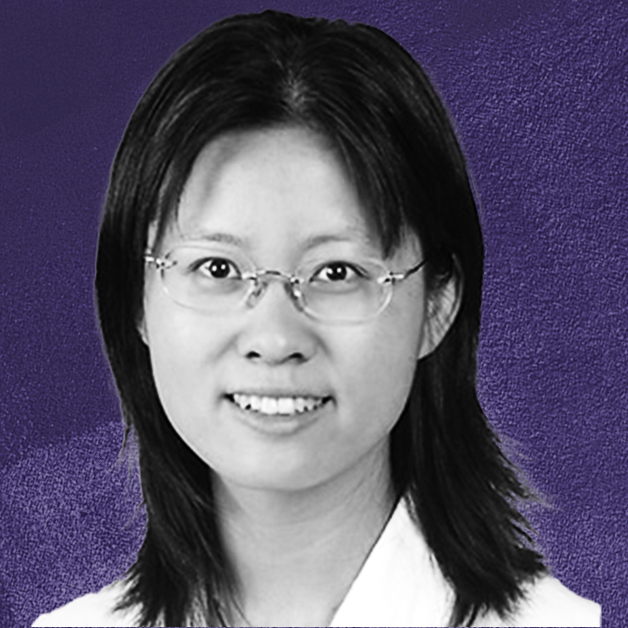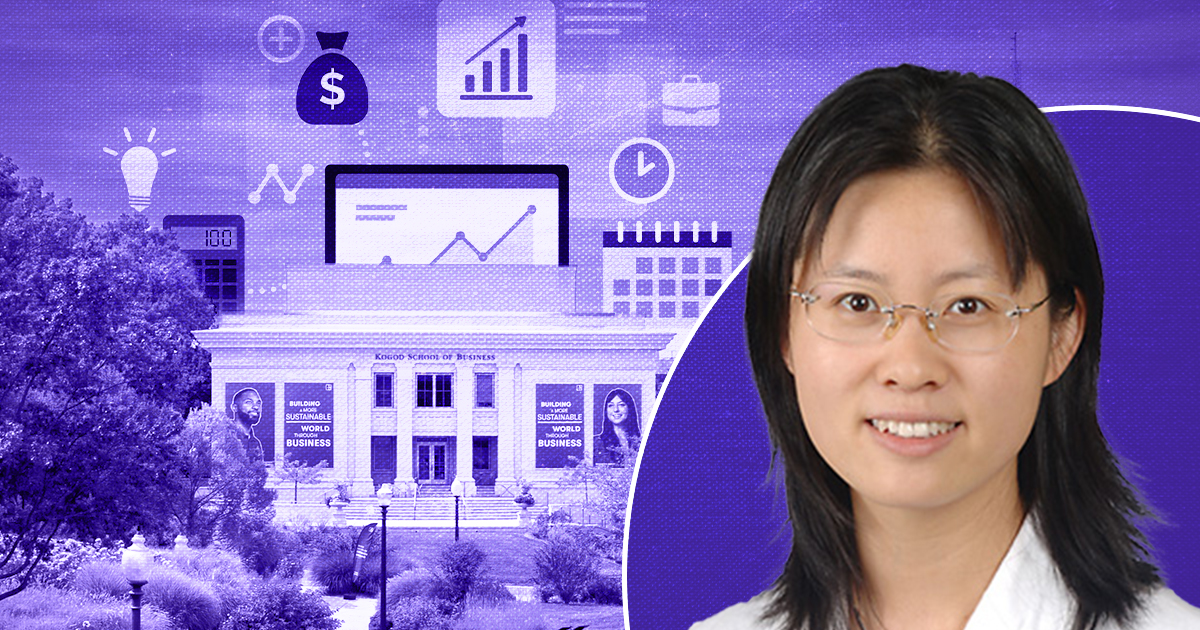
Darby Joyce
Content Marketing Coordinator
In the early 2000s, the world of accounting was rocked by two major scandals that effectively reshaped how US companies are audited. Reports of widespread fraud within energy company Enron and telecommunications company WorldCom led to the establishment of the 2002 Sarbanes-Oxley Act and the Public Company Accounting Oversight Board, both of which changed how auditors and their clients interact.
At the time, Kogod professor of accounting Yinqi Zhang was pursuing her PhD at Temple University. Fascinated by the changes to auditing and the resulting discussion around the significantly stricter rules, Zhang chose to follow up in her research in the years to come.
“The effectiveness of certain provisions, such as the prohibition of auditors providing certain non-audit services to their audit clients and the mandatory cooling-off period before auditors could join client companies, was debated,” she explained. “Intrigued by these developments, I centered my summer research papers and PhD dissertation on evaluating the impact of these regulations on audit quality.”
The route that Zhang took during her PhD studies led her to a broader interest in audit quality that informs her work today. Her published research tackles topics such as auditing fees, perceptions of audit quality, and auditor independence, all providing insights into how companies are evaluated and what goes into a trustworthy audit. Along the way, she learned that outside perception has more of an impact on how audits are received than she originally anticipated.
“My dissertation revealed a disconnect between perceived and actual audit quality, especially with investor perceptions,” Zhang said. “Investors tend to diminish their response to a company’s earnings report if that company hires financial executives who were recently employed by its auditing firm. However, my research did not indicate any tangible decrease in the quality of earnings as a result of such hiring practices.” In other words, a deeper connection between auditors and audited companies can make that company’s investors suspicious—is the audit accurate, or is it clouded by the positive relationship the auditor seems to have with the company? Either way, how people view and trust the audit matters just as much as the audit itself, and managing perceptions is important in these cases.
With that in mind, Zhang works hard to ensure that Kogod’s accounting graduates know both how to analyze data and what that data’s place is in the field. She encourages her students to listen to podcasts that shed light on various industries and their challenges, both to broaden their horizons and to better understand the role of an accountant in many of these same industries.
Accounting is far more than just crunching numbers in a spreadsheet. An accounting degree can lead you to a wide array of career paths such as public accounting, corporate finance, consulting, and investment.”

Yinqi Zhang
Professor of Accounting, Kogod School of Business
“Thanks to the tech revolution, the repetitive work dramatically reduces, making room for more critical thinking and decision making,” she said.
The role of technology in accounting is particularly exciting to Zhang, and she makes sure to work it into her courses. Having taught at Kogod since 2006, she’s witnessed how the past decades’ technological advancements have made accounting more efficient and effective as a whole. In upcoming semesters, her goals include using the programming language Python to extract financial data and to explore how the artificial intelligence bot ChatGPT can be utilized in data analysis. By utilizing emerging technologies in her research and the classroom, Zhang hopes to develop cutting-edge skills in her students while also imparting the importance of facing technology issues head-on.
“The last decade has witnessed a remarkable digital revolution within the auditing sector. Advances in data standards and sophisticated analytics tools have boosted auditors’ capacity to efficiently process vast data sets and to offer more profound insights to their clients,” Zhang said. “However, alongside these strides are escalating risks related to data breaches, presenting new challenges that demand vigilant data security measures.”
Zhang will be looking into those challenges herself in the years to come. She’s intrigued by the role that technology has played and will continue to play in changing how financial reporting and auditing operate, and she already plans to make those questions part of her main research interests. She’s looking forward to passing along what she learns to her students as well.
I have a passion for mastering new software that markedly enhances the efficiency of data processing and transformation, and I enjoy sharing these discoveries with my students.”

Yinqi Zhang
Professor of Accounting, Kogod School of Business
As an accounting professor, Zhang’s role is multifaceted. She ensures that her students are experts in data analysis and decision-making and that they understand how accounting interacts with other disciplines. Beyond that, however, she aims to impart the importance of accounting in the financial world and reveal that it’s much more than looking at numbers. Zhang not only teaches the ins and outs of accounting but also why it matters to have good accountants in every field.
“Accountants are the guardians of financial integrity, which is the bedrock of the economy,” Zhang said. “With an accounting degree, students can have a rewarding career while making a real difference.” Kogod is home to plenty of students who are interested in a meaningful accounting career, and Zhang is ready—and excited—to teach them how to make it happen.
